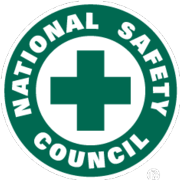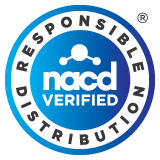
Distributors are facing more rules, regulations, and pressures from the railroads than ever before. With the burden on small business growing significantly, now is the perfect time to share your concerns, get your voice heard, and help implement change.

When California Governor Gavin Newsom signed the state’s controversial AB 5 into law earlier this year, businesses in the state were frustrated, though not surprised. After all, California’s decision to effectively eliminate independent contractors as they are most commonly used is just one action in a long history of policies that has given the state its reputation for clumsy governing.

Earlier this year, NACD became a member of the National Safety Council (NSC), a non-profit organization focused on eliminating preventable deaths and injuries in the workplace, at home, and on the road. For over a century, NSC has been a leading advocate for better safety practices – a commitment that aligns well with NACD’s own third-party verified environmental, health, safety, and security program.

The next phase of NACD Responsible Distribution® starts in January 2020, drawing a close to the 6th Cycle of the three-year mandatory verification program. Although there are no wholesale changes planned for the seventh iteration, the next cycle will continue to build on the achievements of the past three years.

In keeping with his 2016 campaign promises, President Trump made it a priority for his administration to renegotiate the North American Free Trade Agreement (NAFTA). While many business leaders and trade groups would strongly disagree with his characterization of NAFTA, the agreement’s successor has shown in principle to be the substantive improvement that was promised.

What do the smartphone in your pocket, the computer on your desk, and the electric vehicle in your driveway have in common? They are all possible thanks to a technological advancement decades in the making that couldn’t have happened without chemistry: rechargeable lithium-ion batteries.

Clear and effective communication is absolutely vital for the modern chemical distributor. In collaboration with Duke University, the Communication for Leaders Program now gives NACD members the opportunity to hone their presentation skills, refine their executive presence, and learn how best to deal with those tough discussions in the workplace.

Beginning October 11, 2019, importers can submit a petition to the International Trade Commission (ITC) to reduce or suspend the duties of imported materials for three years. The 2019 Miscellaneous Tariff Bill (MTB) petition cycle is intended to reduce or remove duties on goods where no U.S.-made equivalent is available. The opportunity to submit a petition is open until December 10, 2019, after which it will close for three more years.

NACD members place the highest priority on the health, safety, and security of our employees, communities, and the environment. For us, safety is more than a box to check off. It’s a wholehearted commitment to ensuring everyone from the boardroom to the warehouse is engaged and invested in Responsible Distribution, our third-party-verified environmental, health, safety, and security program. Our members take this to heart and have supported Responsible Distribution as a condition of membership for more than 25 years. Because the truth is, safe workplaces are sound businesses.

We all know that the impact Congress has on the chemical distribution industry can be far reaching. Whether they’re writing new laws, reauthorizing existing laws, or failing to act on issues important to our industry, Congress has the ability to both positively and negatively affect our industry and the choices individual companies make to remain successful. Luckily, we each have the opportunity to engage with Congress to make sure our voice is heard. There is nothing more influential that your business could do than to invite your Member of Congress to tour your facility and engage with them to discuss issues critical to your business and the chemical distribution industry.